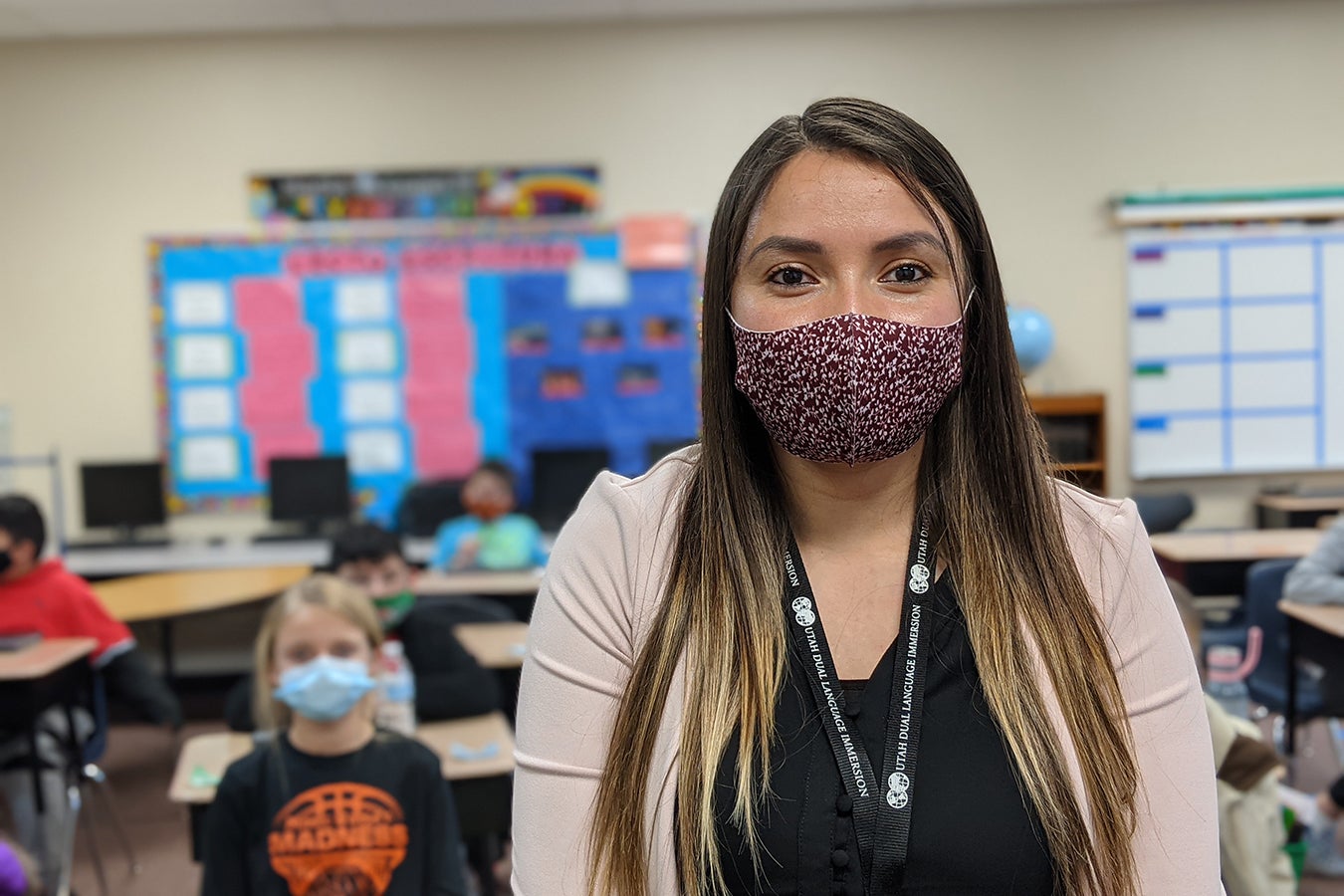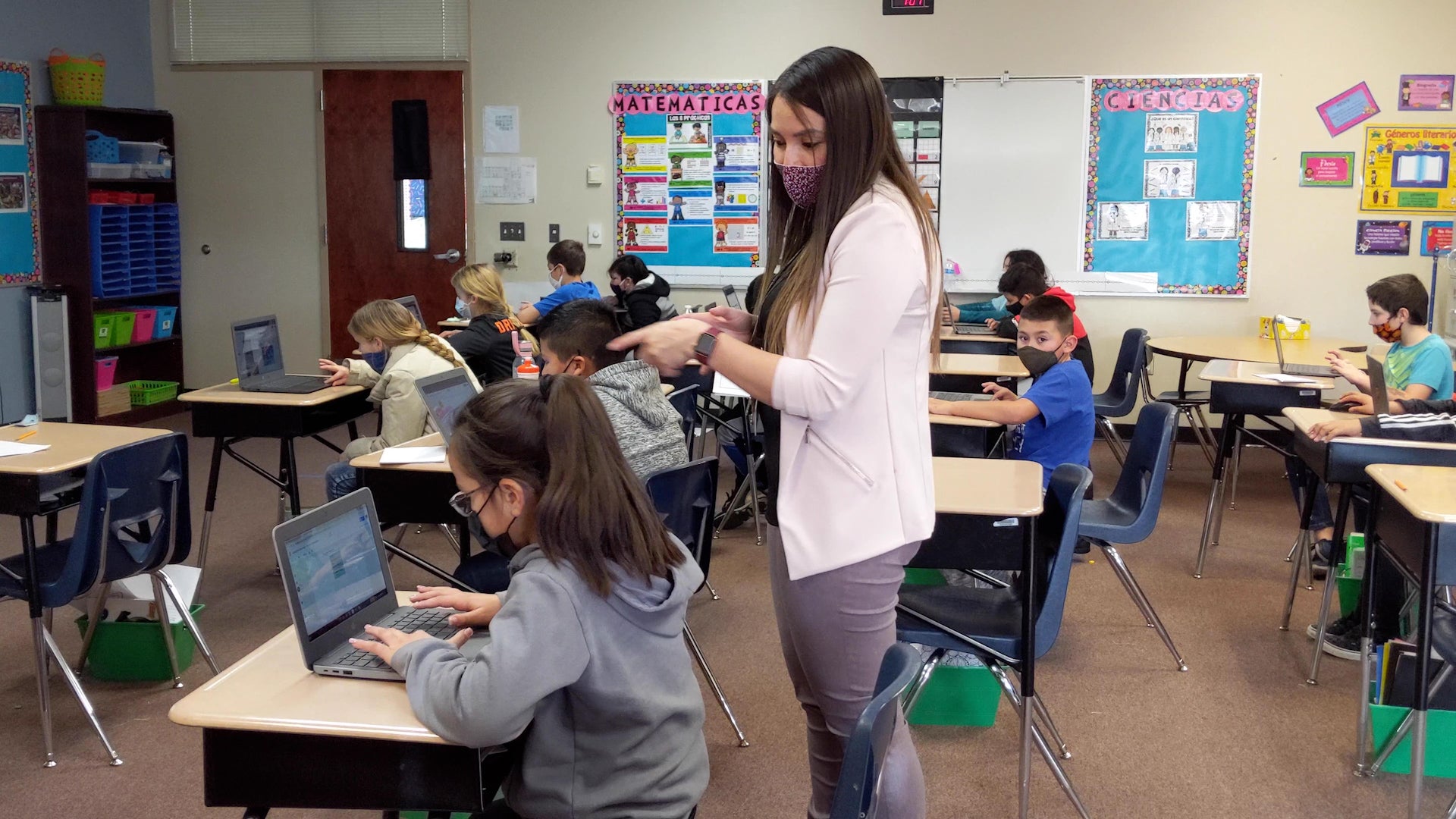
Rosa Gonzalez’s fourth grade dual-immersion classroom at Summit Elementary in Jerome, Idaho, is filled with the sound of nine-year-olds speaking Spanish. A lesson on Costa Rican jungle animals is up on the screen in front of the class. As Gonzalez asks questions about the animals, students eagerly raise their hands to answer in Spanish. After their morning lessons, Gonzalez’s students will cross the hall to co-teacher Jodi Ostler’s classroom for lessons delivered in English.
As an elementary teacher in a general education classroom in 2017, Gonzalez noticed the need for bilingual teachers in her rural school district as dual-immersion programs were becoming increasingly sought after by local parents. Many of her students and their families were native English or Spanish speakers, and studies have shown that children who learn in dual-immersion programs show improvement not only in language acquisition but in cognitive ability and problem solving.
Gonzalez, a native Spanish-speaker, wanted formal instruction in teaching Spanish literacy, so she applied to the Rural Endorsement and Development Opportunities (REDO) project through the College of Education’s literacy, language and culture department at Boise State. The federally funded program leads to a teaching endorsement in bilingual education or English as a new language for teachers in rural areas. Teachers accepted into the program receive a scholarship funded by the U.S. Department of Education Office of English Language Acquisition that covers fees, tuition and licensure exams.
“It is so important for us to support rural communities and Idaho teachers,” said Jennifer Snow, College of Education interim dean. “Our teacher education programs strive to meet the needs of Idaho’s school districts, and we are proud to provide multiple pathways for teacher certification, including fully online and accelerated programs. Rosa is a wonderful example of the impact programs like REDO can have.”
The program enabled Gonzalez to take Boise State courses online while she continued teaching in Jerome. The courses helped Gonzalez understand the foundations of teaching English as a new language and bilingual literacy in the classroom. She became equipped to build successful strategies for teaching in a dual-immersion program, something that is readily apparent in her students’ level of engagement. Both English and Spanish language learners in her class listen to and converse with Gonzalez and each other comfortably in Spanish, whether they are learning math or about the animals of Costa Rica.

“The REDO program has been really successful for teachers in Idaho,” said Claudia Peralta, a professor of literacy, language and culture, and the principal investigator for the REDO program. “Since 2017, 113 in-service teachers from 21 school districts have participated in the program. REDO is making a significant impact on the capacity of Idaho’s teachers to meet the cultural and linguistic needs of Idaho’s students and families.”
After finishing the REDO program, Gonzalez was close to having enough credits to complete a master degree in literacy, language and culture, so she enrolled in the fully-online graduate program last year. As with her previous experience advancing her education through Boise State, she has been able to stay in Jerome and continue teaching while she studies to become a master teacher, aiming to have an even bigger impact on her students.
“The master program is helping me become a better dual-language immersion teacher by understanding the research and theory behind our ever-changing field,” said Gonzalez. “I am thankful that Boise State has made higher education accessible to those of us who live in rural areas of the state so that more students like me will be able to finish their degrees.”
-by Carrie Quinney
